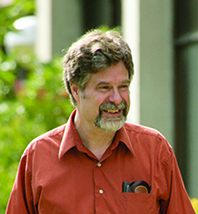
At a glance
 This was Packard’s 14th consecutive year of serving in this capacity. He was one of about 900 high school and college mathematics educators from around the world who scored the free-response questions for approximately 435,000 students who took the AP calculus exam.
This was Packard’s 14th consecutive year of serving in this capacity. He was one of about 900 high school and college mathematics educators from around the world who scored the free-response questions for approximately 435,000 students who took the AP calculus exam.

 Dr. Earl Packard, assistant professor in the Mathematics and Physics Department, was selected to participate in the College Board’s Annual AP Reading in calculus.
Dr. Earl Packard, assistant professor in the Mathematics and Physics Department, was selected to participate in the College Board’s Annual AP Reading in calculus.
This was Packard’s 14th consecutive year of serving in this capacity. He was one of about 900 high school and college mathematics educators from around the world who scored the free-response questions for approximately 435,000 students who took the AP calculus exam.
The Advanced Placement Program® (AP®) enables willing and academically prepared students to pursue college-level studies – with the opportunity to earn college credit, advanced placement or both – while still in high school. Through AP courses in 37 subjects, each culminating in a rigorous exam, students learn to analyze complex problems, construct solid arguments, and see many sides of an issue – skills that prepare them for college and beyond.
Each June, AP teachers and college faculty members from around the world gather in the United States to evaluate and score the free-response sections of the AP Exams. AP readers are high school and college educators who represent many of the world’s leading academic institutions. The AP Reading is a unique forum in which an academic dialogue between educators is both fostered and encouraged.
“The Reading draws upon the talents of some of the finest teachers and professors that the world has to offer,” said Trevor Packer, senior vice president, AP and Instruction at the College Board. “It fosters professionalism, allows for the exchange of ideas, and strengthens the commitment to students and to teaching. We are very grateful for the contributions of talented educators like Dr. Packard.”
Packard, who joined the Alfred State faculty in 2003, holds a doctorate in mathematics from Tulane University, a Bachelor of Science of Education in mathematics from Mansfield University, and a Bachelor of Science degree in music education from Mansfield State College. Prior to coming to Alfred, Packard taught at Kutztown University (PA) and the University of Arkansas, Monticello.
